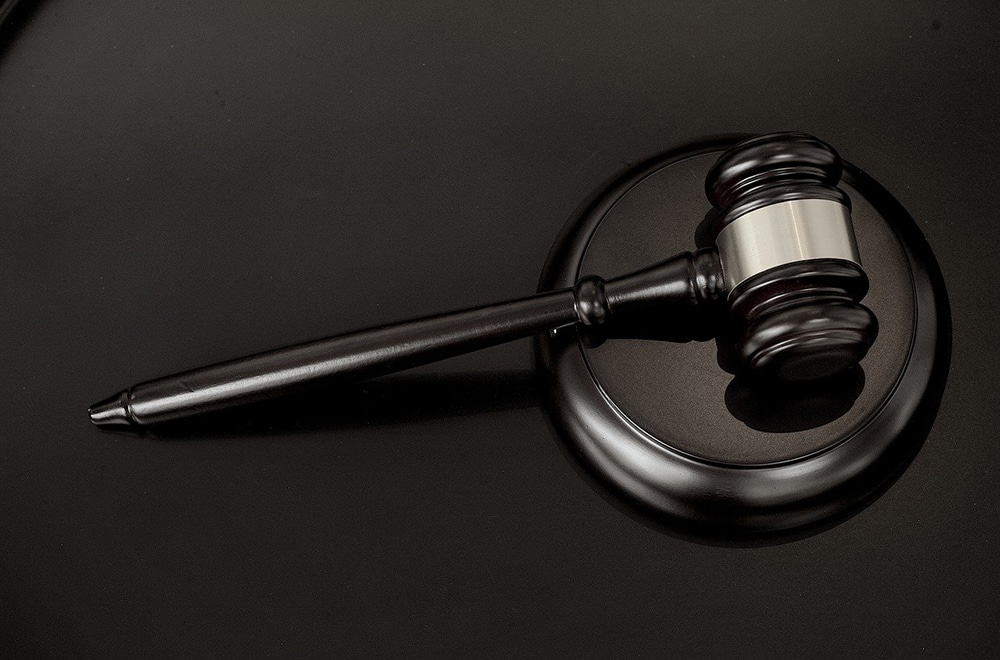Do You Have To Go to Court To File for Bankruptcy?

It doesn’t matter whether your debt slowly crept up over time or if you were hit with several large bills in a short period of time—if you’re unable to repay your debts, you need help. Depending on your situation, filing for personal bankruptcy can be the step that opens up a path to financial freedom and stability in the future.
The beginning of this process can sometimes raise more questions than it initially answers, though. So if you’re asking, “Do you have to go to court to file for bankruptcy?” read on to learn more.
Key Takeaways
- Appearing in bankruptcy court sometimes depends on the type of bankruptcy you file for.
- There are exceptions and extenuating circumstances that can require you to appear before a bankruptcy judge.
- Attendance at your Chapter 13 confirmation hearing is not always mandatory.
Is Going to Court Required for Filing Bankruptcy?
The idea of going to court and standing in front of a judge can be nerve-wracking. When you are drowning under too much debt and looking for a way out, the last thing you may want to do is make an appearance in court. However, in most personal bankruptcy cases, there isn’t a need to go to bankruptcy court.
Instead, the most official meeting that most people will ever need to attend is the 341 hearing. Also known as the meeting of creditors, this hearing is not held in a courtroom. You’ll also find that few creditors ever actually show up to these meetings.
Depending on the type of bankruptcy you’ve filed for, the only times you can expect to go to bankruptcy court is when filing your bankruptcy forms or when an issue arises. If you are filing for Chapter 13 bankruptcy, you can expect to go to court at least one additional time for a confirmation hearing. We’ll go into detail about this hearing below.
Reasons Going to Court May be Necessary
Although most bankruptcy cases never end up in court, there may be extenuating circumstances that require you to go. Situations that may necessitate going to bankruptcy court include:
- Attending a fee waiver hearing
- Filing a motion to extend an automatic stay
- Attending a hearing for an adversary proceeding
You may also need to attend court if you’ve been granted an automatic stay that protects your secured debt, such as a vehicle or house, and a creditor files a motion to lift the automatic stay.
If you receive a summons to appear in bankruptcy court, take note of the date, time, and location. Arrive early so that you have time to make sure you’re prepared.
Court Appearances in the Different Types of Personal Bankruptcy
Chapter 7 and Chapter 13 are the two most common forms of personal bankruptcy. Requirements for these different types of bankruptcy vary, including if and when you may need to go to court.
Let’s explore the main differences in when you might have to go to court for Chapter 7 vs. Chapter 13 bankruptcy.
Going to Court for Chapter 7
Chapter 7, also known as liquidation bankruptcy, is a process that typically takes anywhere from four to six months to resolve. During this time, there are unlikely to be additional hearings on top of the 341 hearing (hearing of the creditors). Exceptions may apply, of course, such as if you are requesting a waiver of court fees or if a creditor is asking that your automatic stay be prematurely ended.
At the conclusion of Chapter 7 bankruptcy, eligible debts will be discharged.
Going to Court for Chapter 13
Chapter 13 bankruptcy involves reorganizing debts to make repayment more manageable. Repayment plans typically last anywhere from three to five years. At the conclusion of this plan, any remaining qualified debt will be discharged.
If you file for Chapter 13 bankruptcy, there will be a confirmation hearing for your repayment plan. During this hearing, a bankruptcy judge will review the plan and either accept or reject it. It is important to note that this court appearance might occur after you have already begun making payments.
This is because you are required to begin paying toward your repayment plan within 30 days of filing for bankruptcy, even if it has not yet been approved by the court.
Depending on the jurisdiction, whether you’ve made your payments in a timely manner, and if you’ve hired an attorney to represent you, you may not have to attend the confirmation hearing.
Never make any assumptions about whether your appearance is required or not, though. Always double-check with your attorney or the courthouse to see whether you need to be physically present at the confirmation hearing. If you’ve missed payments or been late on them, you’ll likely have to appear in court.
Why Do People File for Bankruptcy?
No one plans to end up in debt. The reality of life today often demands that people take on more and more debt, even as their incomes remain stagnant. Everything from getting an education to seeing a doctor comes with a price tag that most people simply cannot afford. A 2019 study even found that the majority of people who filed for bankruptcy between 2013 to 2016 did so in large part because of medical debt.
There are many reasons that people end up with more debt than they can afford to pay back. At Belsky & Horowitz, LLC, we don’t care how you ended up in debt. We’re not here to judge or shame—we’re here to help.
Your first meeting with our law firm is always free. So get in touch today, and we’ll go over any questions you have, discuss when you will have to go to court to file bankruptcy, and which type of bankruptcy you qualify for.






